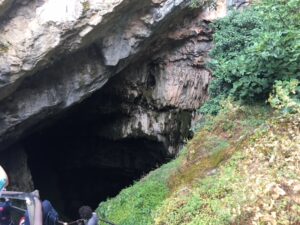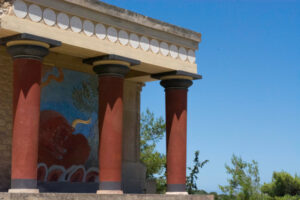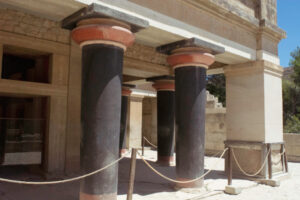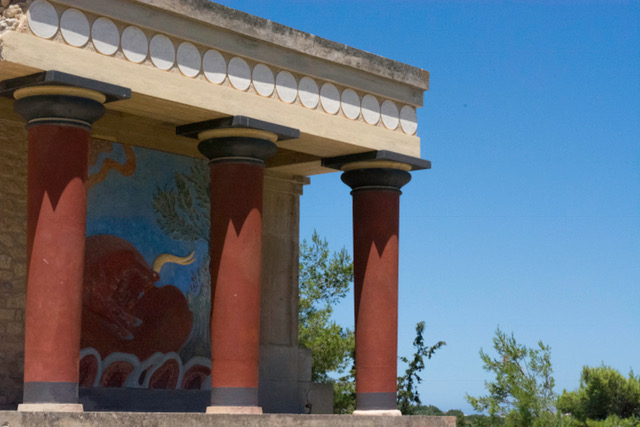The blind poet Homer once sang of the mighty hero Odysseus, sailing across the Wine Dark Sea as he passed the craggy shores of Crete. It is the land of Minos, king of an empire so great it once brought Athens to its knees.It is the place where Zeus was hidden from his ravenous and jealous father, Cronos, raised in a cave where soldiers clashed their weapons to cover his mighty cries, born into darkness in the depths of the cavern in Lasithi, where tourists flock today in droves to descend into this haunted place, a cathedral of stone with spiral ceilings and thick cool atmosphere lead any visitor to understand how the legend was born in that place. The land of Crete lends itself to curious imaginings. Caves that look like entrances to the underworld abound in the island. A hike through the bucolic countryside will find ancient sites and olive hillsides covered with the ubiquitous olive tree, sometimes with trees 4000 years old. It is easy to become lost in the mythology of the very air.

The ancient songs of Homer ring through the Cretan countryside disguised as the blowing winds. Standing on stop of that plateau, you can picture the heroic king Orpheus playing his lyre, calling his wife Eurydice out of her crooked tree. In the gorge of Samaria, goats fearlessly climb impossible rock sides of surrounding mountains as one hikes through, still imagining that the wind carries the song of the king, looking for his lost love, hiking a trek very much like the one you’re walking on right now. Though his goes to a darker destination than the path you’re following. Looking to either side of this gorge, one gets a perspective of ones’ place in this incredible land. But perhaps you feel like searching for history within the island? It is a history that is intertwined with myth, so much so that the lines between reality and mythology is blurred. You can visit the labyrinth at Knossos, where the monstrous Minotaur was held, though today it is much less a prison for a beast and more a fascinating archaeological ruin. Walking through its once great halls evokes a feeling of wonder and mystery, and you cannot help but picture the palace and the labyrinth beneath in their respective heydays, glistening with vivid color and beautiful murals. The image of the bull is shown throughout the palace, and you can’t help but wonder as you step through the ruins…that perhaps reality isn’t as separate from fiction as one would like. Could there be more truth to the story of the half man, half bull? Could the stories of the heroic Theseus, wandering the dark corridors of the labyrinth, holding his breath as he listens for the monster, sword in hand and magic thread in the other, be true? In the land of gods and monsters, perhaps, just perhaps, it could be.

Even when we seek rest and sustenance with food and drink, the ancient spirit of Crete is alive and dominate over the modern land. Mythology has even woven itself into the very fabric of Cretan customs. The ancient rule of Philoxenia, the law of hospitality, wherein travelers and strangers are to be protected and entertained with respect, is still practiced today in every Cretan household. The belief was born from the myth that wandering gods, taking on human form, would pay surprise visits to the mortals in an effort to test their hospitality. Nowhere is philoxenia more prevalent than in local tavernas, where a visit will prove the Cretan adherence to the law of hospitality. No one leaves the table without first a toast of raki, a drink that is certain to both delight and fascinate, and a sampling of local fruit as dessert. The traveler is always made to feel like a friend-that is the Cretan way. After all, you never know if your next dinner guest is Zeus in disguise.

Crete is the land of heroes and marvels. Legends lend themselves to the gorgeous Cretan landscape and rugged terrain. Listen to the distant sounds of the bells placed around the necks of goats, and the cicadas hum, and one will instantly be transported to the time of Homer and his gods and heroes.
By Katarina Kapetanakis

